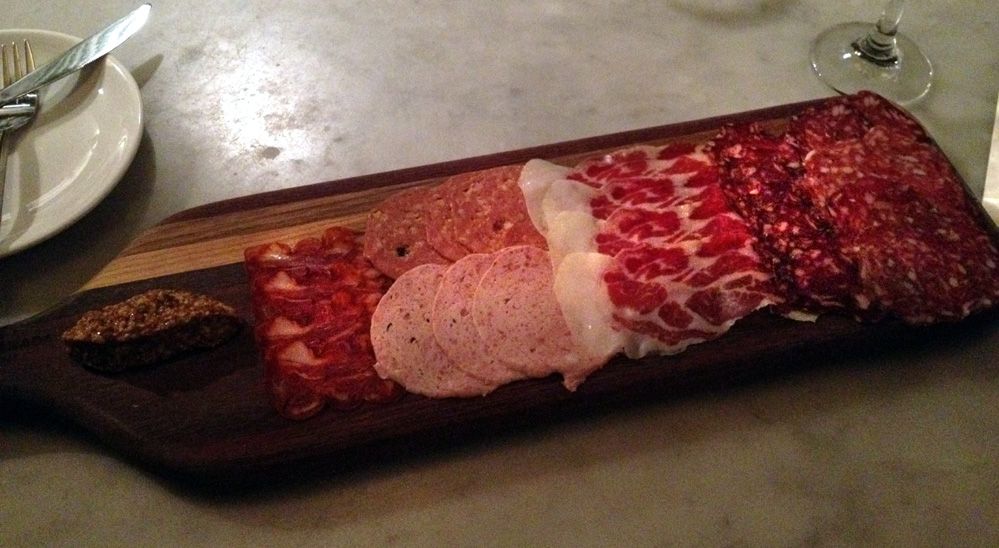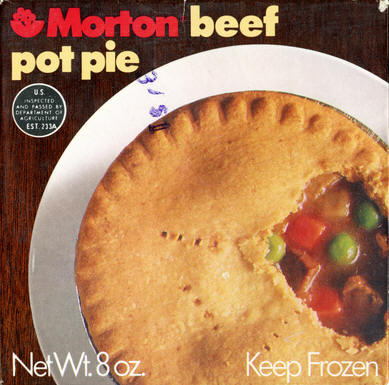Beco
I'm Not Your Guru
- Joined
- Sep 12, 2002
- Posts
- 57,795
Brits eat horse meat?
In the weeks since news broke that frozen burgers and other beef meals at U.K. supermarkets were found to contain horse DNA, the scandal has spread from the original processing plants in Ireland to include food from major companies including Nestle.
For many Americans, the thought of eating horse is as unthinkable as serving up the family pet on a plate. It’s the same for many in Britain, where meals labeled as beef likely would have languished on shelves if the packages advertised horse. But for others in Europe, horse meat is a delicacy that’s in high demand, including at Khublai Khans Mongolian Restaurant in Edinburgh, Scotland, as shown in this Deadline News video.
The scandal has proved positive for traditional butchers in the U.K., as consumers used to spending a significant portion of their food budget on processed and prepared meals turn to them in search of transparency and a safer beef source, according to CCTV International.
In France, where horse meat is seen by many as a leaner and lower-cholesterol alternative to beef, sales of horse meat have risen about 15% since the scandal began, and consumers have been frequenting traditional horse butchers to make sure they’re getting what they want, The Guardian reported. “Everyone’s talking about horse meat,” butcher Daniel Adam said. “People are thinking, ‘Ah, horse meat, I’d forgotten about that option. I think I’ll come back to it,’ ”
Horse began as a cheap, working-class food in the 1700s and kept that image for centuries in France; consumption began declining in the 1980s, and nearly 75% of French residents who eat horse meat are 50 or older. For those who eat horse meat by choice, the key word is “choice.” “People have the right to know what’s in their food,” assistant chef Magalie Hennequin told The Guardian. “At first, I wasn’t sure where to go to buy horse. There was no way I would buy it in a supermarket; I had to find a specialist butcher.”
The scandal doesn’t affect only supermarket meals. Burger King quit buying beef for U.K. restaurants from that Irish supplier. Eater asked 11 U.S. restaurant chains whether Americans have to worry about the beef on their plate, and most responded with resounding reassurance about the quality — and purity — of their beef.
In the weeks since news broke that frozen burgers and other beef meals at U.K. supermarkets were found to contain horse DNA, the scandal has spread from the original processing plants in Ireland to include food from major companies including Nestle.
For many Americans, the thought of eating horse is as unthinkable as serving up the family pet on a plate. It’s the same for many in Britain, where meals labeled as beef likely would have languished on shelves if the packages advertised horse. But for others in Europe, horse meat is a delicacy that’s in high demand, including at Khublai Khans Mongolian Restaurant in Edinburgh, Scotland, as shown in this Deadline News video.
The scandal has proved positive for traditional butchers in the U.K., as consumers used to spending a significant portion of their food budget on processed and prepared meals turn to them in search of transparency and a safer beef source, according to CCTV International.
In France, where horse meat is seen by many as a leaner and lower-cholesterol alternative to beef, sales of horse meat have risen about 15% since the scandal began, and consumers have been frequenting traditional horse butchers to make sure they’re getting what they want, The Guardian reported. “Everyone’s talking about horse meat,” butcher Daniel Adam said. “People are thinking, ‘Ah, horse meat, I’d forgotten about that option. I think I’ll come back to it,’ ”
Horse began as a cheap, working-class food in the 1700s and kept that image for centuries in France; consumption began declining in the 1980s, and nearly 75% of French residents who eat horse meat are 50 or older. For those who eat horse meat by choice, the key word is “choice.” “People have the right to know what’s in their food,” assistant chef Magalie Hennequin told The Guardian. “At first, I wasn’t sure where to go to buy horse. There was no way I would buy it in a supermarket; I had to find a specialist butcher.”
The scandal doesn’t affect only supermarket meals. Burger King quit buying beef for U.K. restaurants from that Irish supplier. Eater asked 11 U.S. restaurant chains whether Americans have to worry about the beef on their plate, and most responded with resounding reassurance about the quality — and purity — of their beef.
Last edited:


